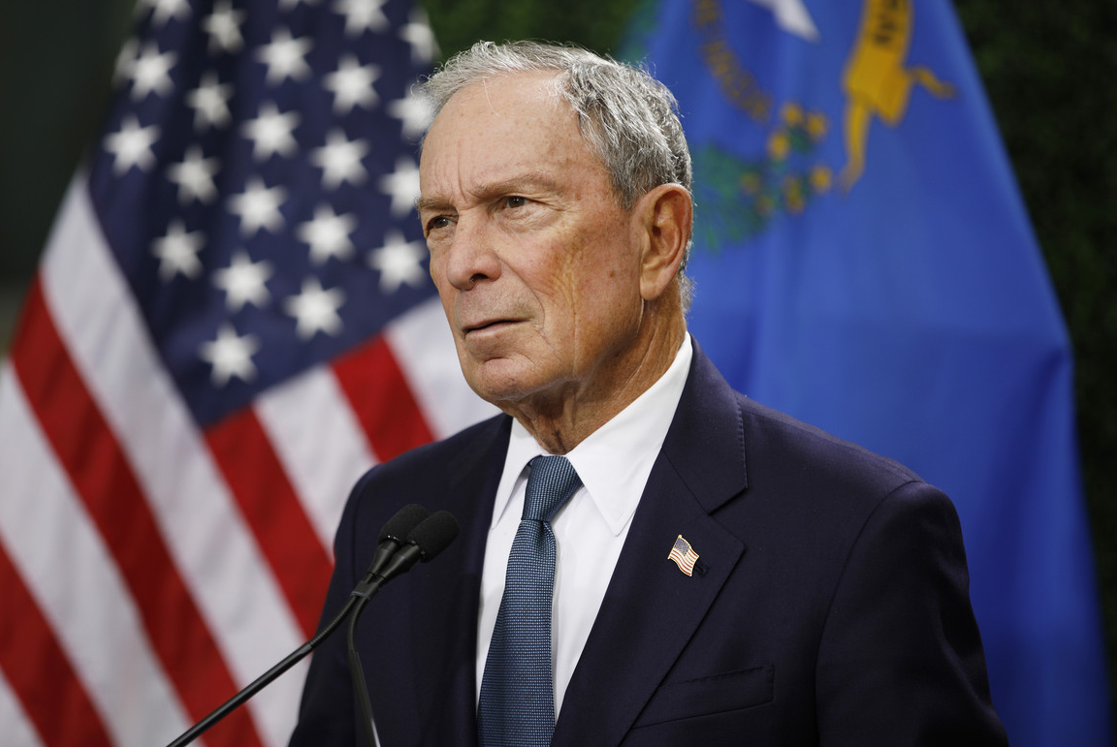Where do the 2020 Democratic presidential candidates stand on drug prices? A Healthcare Voter Guide

This post was last updated February 27th, 2020:
American voters are extremely concerned – rightfully so – about rising prices of prescription drugs. Come the 2020 election, drug prices are going to be a big deal.
According to a poll conducted by The Hill, 9 out of 10 voters feel Congress must act to reduce drug prices. The Kaiser Family Foundation found that 79% of Americans think drug prices are unreasonable. Notably, this feeling is not party-specific: People from all parties seem to feel that drug prices are too high. A recent Gallup poll found that healthcare costs are on top of the list of financial concerns among Americans.
This means the 2020 prospective democratic candidates are also heavily focused on healthcare. Each person running for office has had to answer to America’s soaring drug prices. Let’s parse through what exactly each candidate has stated and/or promised.
Quick note: Candidates who support Medicare for All are in favor of lowering drug prices because the bill contains provisions dedicated to drug prices.
Bernie Sanders on Drug Prices
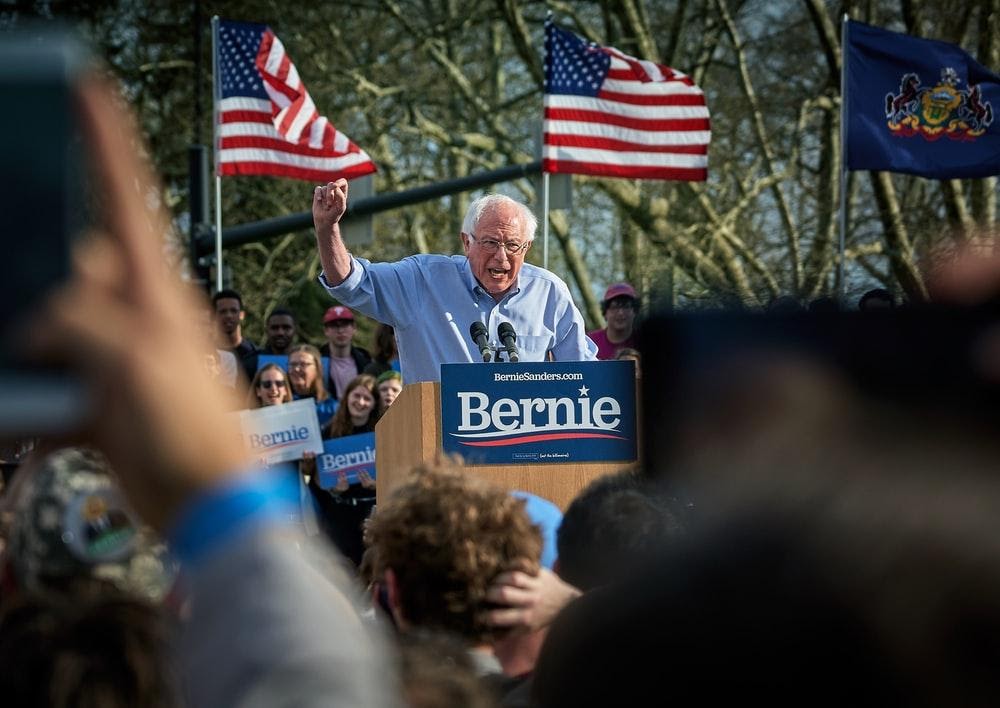
Does he support Medicare for All? Yes.
What Sanders has done: Most recently, Sanders proposed erecting a federal “bureau” dedicated to controlling drug prices. In November 2019, Sanders, alongside fellow democratic hopeful Senator Cory Booker and Senator Kamala Harris (who has since dropped from the 2020 race), introduced a bill calling for the creation of the Bureau of Prescription Drug Affordability and Access. This is separate from Sanders’s Medicare for All proposal, which would require the Secretary of the Department of Health and Human Services (“HHS Secretary) to negotiate directly with drug companies for better drug pricing overall.
The culinary union in Nevada, much to everyone’s surprise, did not endorse Sanders purely because, it seems, he has proposed Medicare for All. Therein lies the issue with Medicare for All: Some people, particularly unions, are attached to the healthcare plans they have fought for. Medicare for All would implode these plans.
What Sanders has said: At the February 22nd debate, Sanders was the only candidate to mention prescription drugs by name, saying, “ What the Health and Human Services have said in analyzing healthcare costs, what recent Yale study has said, is that [Amy Klobuchar’s] program would cost some $50 trillion over a 10 year period. We would continue to pay, in some cases, 10 times more for the same exact prescription drugs.”
In the December debate, Sanders made a simple promise: “...no family in America will spend more than $200 a year on prescription drugs.”
On Face the Nation in March 2019, Sanders said, “Let me make a campaign promise to you. And you can repeat this – play this tape over – if I am elected president. If I am elected president, I am going to cut prescription drug costs in this country by 50 percent.”
See Bernie Sanders’s Grade on Lowering Drug Prices
Elizabeth Warren on Drug Prices
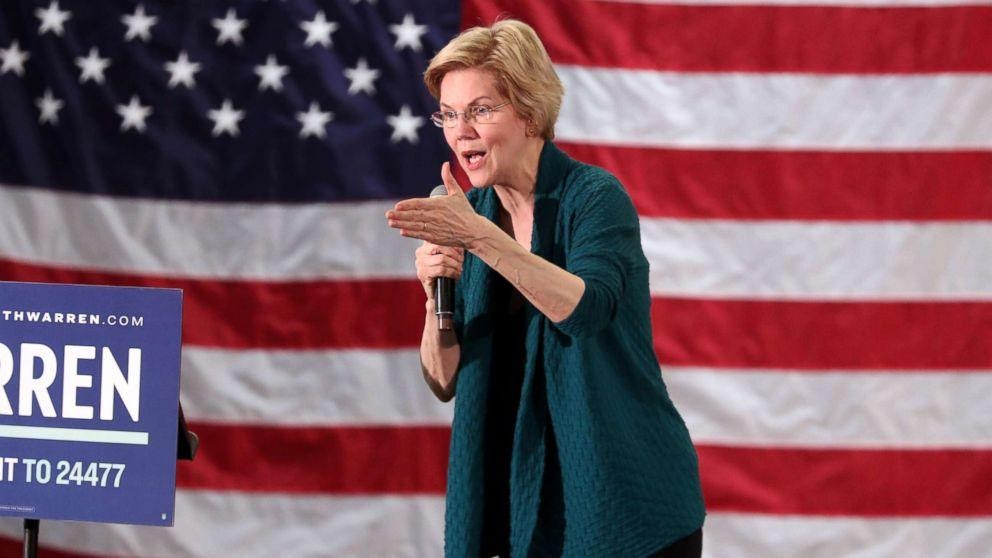
Does she support Medicare for All? Yes.
What Warren has done: Warren co-sponsored Sanders’s Medicare for All bill, which mandates that the HHS Secretary negotiate directly with drug companies for better prices on prescription drugs. In 2018, she introduced a bill entitled the Affordable Drug Manufacturing Act that aims to lower prescription drug prices by authorizing government’s manufacture of prescription drugs where the market is failing to provide affordable options.
What Warren has said: Like Klobuchar, Warren announced at the January debate that she wants to lower drug prices without involving Congress.
At the December Democratic debate, Warren made a promise, saying, “I want to do the most good I can for the most people as quickly as possible. On day one, I'm going to attack the prices on commonly used drugs, such as EpiPens and insulin, and bring down those prices. The president can do that—I love saying this—all by herself. And I will do it. That's going to save families hundreds of millions of dollars.”
See Elizabeth Warren’s Grade on Lowering Drug Prices
Joe Biden on Drug Prices
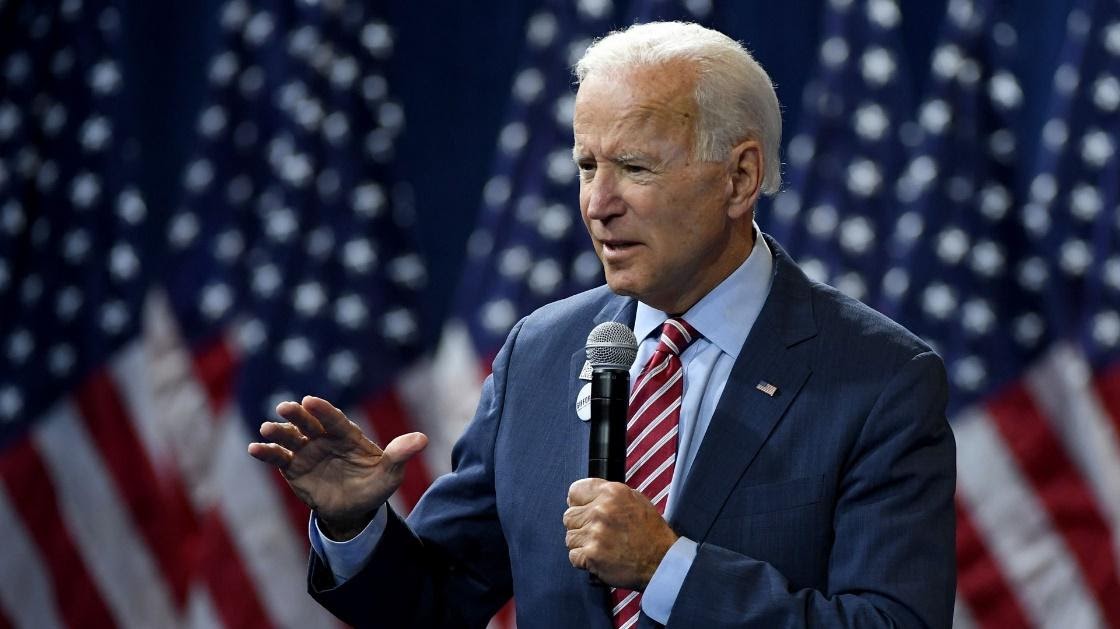
Does he support Medicare for All? No.
What Biden has done: Biden supports a public option, mainly because, he says, he does not want to dismantle President Barack Obama’s Affordable Care Act. The ACA notably increased the amount drug manufacturers paid in rebates to bring down out-of-pocket costs for people in Medicare.
What Biden has said: In July of 2019, Biden debuted ACA 2.0, which would include importing drugs from abroad to combat rising drug prices. In addition, Biden claimed that he would allow Medicare to negotiate for better drug prices directly. On his website, Biden writes that he wants to do the following:
1) Repeal the outrageous exception allowing drug corporations to avoid negotiating with Medicare over drug prices
2) Limit launch prices for drugs that face no competition and are being abusively priced by manufacturers
3) Limit price increases for all brand, biotech, and abusively priced generic drugs to inflation
4) Allow consumers to buy prescription drugs from other countries
5) Terminate pharmaceutical corporations’ tax break for advertisement spending
6) Improve the supply of quality generics
Mayor Pete Buttigieg (South Bend, IN) on Drug Prices
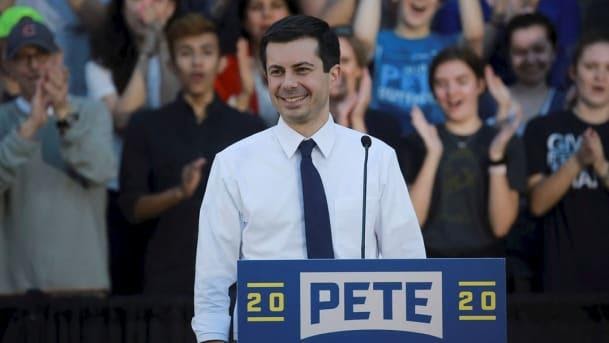
Does he support Medicare for All? No. Well, except if you want it.
What Buttigieg has done: “Mayor Pete,” as they call him, has thus far endorsed a “Medicare for All Who Want It” approach, which resembles Biden’s “public option.” He also told the Washington Post that he doesn’t support the federal government manufacturing drugs.
Buttiegieg is performing a delicate high-wire act with his drug pricing plan, which you can read in full in this Word document. Namely, Buttiegieg wants Big Pharma to still “thrive,” in his words, despite increased regulations. The plan describes itself thusly: “Pete’s Affordable Medicine for All plan dramatically reduces prescription drug costs, forces pharmaceutical companies to price responsibly and pay their fair share, and encourages innovation in new medicine manufacturing, financing, and delivery.”
What Buttigieg has said: In a statement released in conjunction with his “Medicare for All Who Want It” plan, Buttigieg said, "For years, Washington politicians have allowed the pharmaceutical industry, giant insurance companies, and powerful hospital systems to profit off of people when they are at their sickest and most vulnerable. My 'Medicare for All Who Want It' plan will create a health care system that puts power in the hands of each American."
Rep. John Delaney (D-MD) on Drug Prices
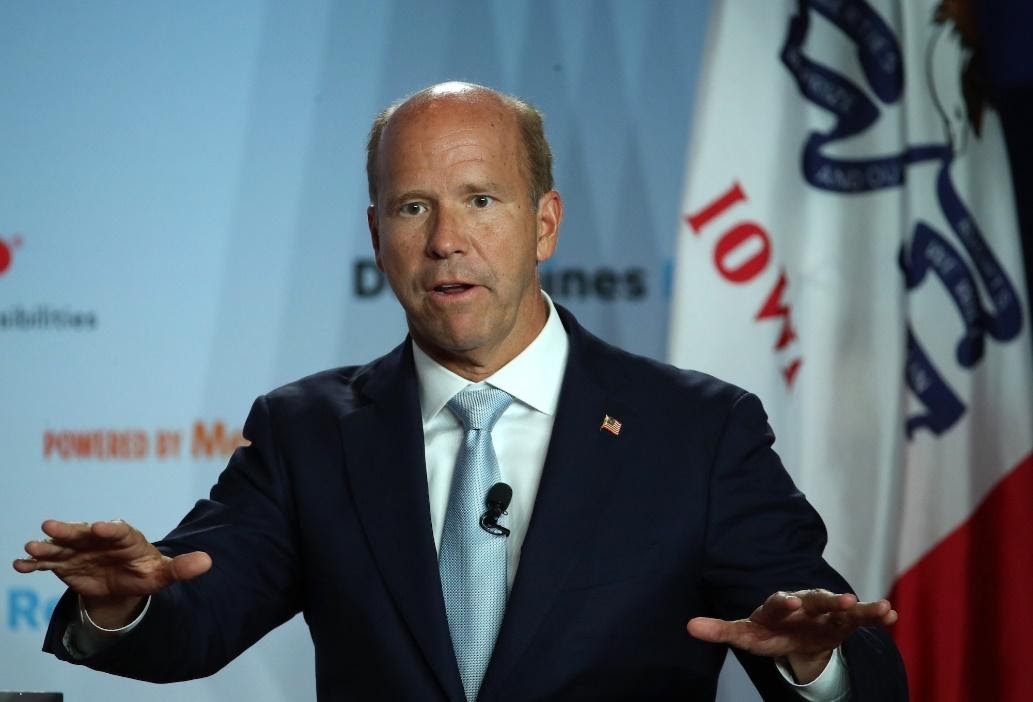
Does he support Medicare for All? No.
What Delaney has done: Delaney is calling his proposed plan “BetterCare.” He will introduce a public healthcare plan available to Americans under 65 while also expanding Medicare.
What Delaney has said: On his website, Delaney says that “allowing the government to negotiate drug prices would stop the transfer of wealth from working families to corporate executives and shareholders of pharmaceutical companies. This would save the government nearly $850 billion.”
See John Delaney’s Grade on Lowering Drug Prices
Rep. Tulsi Gabbard (D-HI) on Drug Prices

Does she support Medicare for All? Yes.
What Gabbard has done: Gabbard, a democratic senator for Hawaii, co-sponsored John Conyers’s Medicare for All bill, which was introduced in 2017. This bill pledges to include prescription drug coverage in the expanded version of Medicare for All. In January of this year, Gabbard lent her support to the Medicare Drug Price Negotiation Act.
What Gabbard has said: Said Gabbard in a statement, “No one should be forced to choose between putting food on the table and paying for life-saving medication. But that’s exactly what’s happening to millions of Americans as a result of big pharma’s chokehold on Medicare. They’ve managed to buy access into Congress, barring the government from negotiating cheaper prices for consumers, so they can continue to price-gouge those trying to buy life-saving medication and rake in profits at the expense of the American people. Our legislation makes progress toward ensuring quality healthcare for all Americans.”
In late February 2020, Gabbard tweeted, “As president, I’ll make sure government is able to negotiate lower drug prices for Medicare, refocus our nation’s health care on prevention and wellness, and end the pay to play culture in Washington that allows Big Pharma to corrupt politicians and rip off the American people.”
See Tulsi Gabbard’s Grade on Lowering Drug Prices
Senator Amy Klobuchar (D-MN) on Drug Prices

Does she support Medicare for All? No.
What Klobuchar has done: A lot. She has sponsored the Safe and Affordable Drugs from Canada Act, Empowering Medicare Seniors to Negotiate Drug Prices Act, and the Preserve Access to Affordable Generics Act. In June of this year, Klobuchar introduced a bill that suggests protecting consumer health data from businesses. The same month, she cosponsored a bill entitled “Public Health Funding Restoration Act,” which hopes to “to fully fund the Prevention and Public Health Fund and reaffirm the importance of prevention in the United States healthcare system.” The senator has also supported the expansion of Medicare, although she has not explicitly supported Medicare for All. In September, Klobuchar took a swipe at Bernie Sanders’s fervent support of the universal expansion of Medicare.
What Klobuchar has said: In January’s presidential debate, Klobuchar declared that she would be able to lower prescription drug prices without the help of Congress -- aka, she would not need to pass a bill in order to do so. Bills can take their sweet time moving through the system, and Klobuchar’s point is that she can expedite this process by leaving Congress out entirely.
In a statement about Medicare drug price negotiations, Klobuchar said, ”American seniors deserve a better deal, and my legislation would lift the restriction that prohibits Medicare from negotiating the best possible prescription drug prices so we can increase the affordability of critical medications. The Senate must act now to pass legislation that would lower the cost of prescription drugs.”
See Amy Klobuchar’s Grade on Lowering Drug Prices
Tom Steyer on Drug Prices
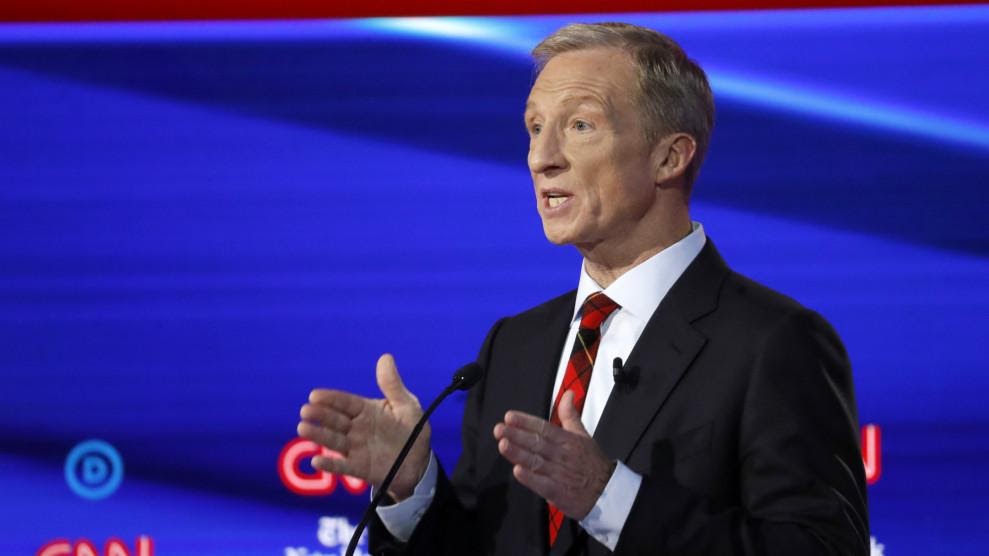
Does he support Medicare for All? No.
What Steyer has done: Steyer supports a public option plus some Medicare expansion.
What Steyer has said: On his website, Steyer writes, “Tom will build on his home state work to increase drug pricing transparency and work to significantly curtail the costs of prescription drugs. He will enable Medicare and the public option to jointly negotiate drug prices directly with manufacturers and extend these negotiated prices to private insurers, saving more than $50 billion per year. He will also benchmark the cost of drugs against international standards and institute a price cap. The plan will also enable Americans to purchase FDA approved drugs from across international borders, advance nationwide pricing transparency, and eliminate the ability of drug manufacturers to expense the cost of advertisements and increase advertising disclosure requirements.”
Michael Bloomberg on Drug Prices
Does he support Medicare for All? No.
What Bloomberg has done: Bloomberg, who announced his entry in late November, claims on his website that he supports expansion of both Medicare and the Affordable Care Act. In January of 2019, Bloomberg also told workers in a factory in Nashua that Medicare for All would “bankrupt” the country. As mayor of New York City, Bloomberg was very public health-focused, training his legislation onto things like tobacco use and childhood obesity. He notoriously tried (and failed) to ban sodas — “sugary drinks,” according to the verbiage at the time — over 16 ounces. Per his website, during his time as mayor, New Yorkers gained three years in life expectancy.
What Bloomberg has said: The billionaire New Yorker rolled out a drug pricing plan in January of 2020. His principle tenet? Limiting drug patents to a single, 20-year patent.
Thus far, he has promised that because he is using his own money to run his campaign, he cannot be bought.
Presidential Candidates That Have Left the 2020 Race
Deval Patrick on Drug Prices
(left the race in February 2020)
Does he support Medicare for All? No, but he has expressed appreciation for a public option.
What Patrick has done: A latecomer to the primary, Patrick only announced his run in November 2019. In interviews following the announcement, Patrick said he supported a public option, not Medicare for All. A former governor of Massachusetts, Patrick chaperoned what was initially Mitt Romney’s (then governor of Massachusetts) 2006 state healthcare reform, on which Obamacare was eventually modeled at the federal level.
What Patrick has said: Very little, given his relative entry to the race, although Patrick did step down from two healthcare boards in November after he faced scrutiny for his ties to the pharmaceutical industry. In a statement he gave to reporters the day he filed his campaign fee, Patrick acknowledged that he liked the work Elizabeth Warren and Bernie Sanders have done to “broaden” the discussion surrounding healthcare.
Senator Michael Bennet (D-CO) on Drug Prices
(left the race February 2020)
Does he support Medicare for All? No.
What Bennet has done: Bennet, a Colorado senator, has said little about prescription drugs. As far as healthcare, he has proposed a “public option” plan he is calling Medicare X. Senator Tim Kaine, who was last seen on the national stage running for vice president, has co-sponsored Bennet’s Medicare X bill. A “public option,” which many candidates have endorsed, is effectively an opt-in Medicare for All. Under this system, Americans would be able to enroll in Medicare if they choose to do so. (Medicare for All, by contrast, implies a required enrollment for all U.S. citizens.)
What Bennet has said: Speaking on Morning Joe, Bennet said that he doesn’t support Medicare for All. “What you’re talking about is the legislation Bernie Sanders has in the Senate. That would take insurance away from 180 million people who get [insurance] through their employer, 80% of whom like it. It would take insurance away from every labor union in America that’s negotiated a healthcare plan, and it would cost $30 trillion. I have a bill with Tim Kaine called Medicare X that would create a true public option. It actually starts in rural areas...and then over three years, it migrates everywhere.”
See Michael Bennet’s Grade on Lowering Drug Prices
Andrew Yang on Drug Prices
(left the race February 2020)
Does he support Medicare for All? Yes.
What Yang has done: Aside from his signature policy, offering a Universal Basic Income (Yang’s primary campaign incentive), Yang supports Medicare for All. Yang also supports expansion of holistic healthcare. He has referred to his plan as the “holistic healthcare plan.”
What Yang has said: Yang writes on his website, “With a shift to a Medicare for All system, costs can also be controlled directly by setting prices provided for medical services. The best approach is highlighted by the top-ranked Cleveland Clinic. There, doctors are paid a flat salary instead of by a price-for-service model. This shift has led to a hospital where costs are visible and under control. Redundant tests are at a minimum, and physician turnover is much lower than at comparable hospitals.”
Senator Cory Booker (D-NJ) on Drug Prices
(left the race January 13, 2020)
Does he support Medicare for All? Yes.
What Booker has done: The New Jersey senator co-sponsored Sanders’s Medicare for All bill, and, more recently, has proposed a separate federal entity to control drug prices with Harris and Sanders. The bill proposes the Bureau of Prescription Drug Affordability and Access, which would create a special federal office for controlling drug prices. Earlier this year, Booker also co-sponsored three bills that aim to lower costs:
-
The Prescription Drug Price Relief Act
-
The Medicare Drug Price Negotiation Act
-
The Affordable and Safe Prescription Drug Importation Act
What Booker has said: In a press release pegged to the three drug pricing bills, Booker said, “There is no reason that, in a country as rich as ours, Americans should be choosing between paying for prescription drugs and paying for food and other necessities...And incredibly, despite an enormous tax windfall from the Trump tax cuts, drug manufacturers aren’t lowering prices – they’re issuing stock buybacks to their shareholders and in many cases raising prices. Congress can’t sit on the sidelines while this is going on. That’s why I’m supporting this comprehensive approach to reduce the growing cost of prescription drugs, including a renewed push to pass our bill to safely import prescription drugs from Canada and other countries.”
See Cory Booker’s Grade on Lowering Drug Prices
Marianne Williamson on Drug Prices
(left the race January 10, 2020)
Does she support Medicare for All? Yes.
What Williamson has done: Williamson, Oprah Winfrey’s former spiritual advisor, supports Medicare for All. She has also proposed providing more funds to the CDC and the FDA.
What Williamson has said: On her website, Williamson writes, “The issue is not just the cost of health care, but the larger cost we are paying – the human cost of being sick so much and so often. Not just a cost to our pocketbooks, but the cost to the quality, and even length, of our lives. The Trump administration has proposed billions of dollars in cuts to the National Institute of Health, Centers for Disease Control, and the Food and Drug Administration. If he is successful, I will restore the funding and add even more to it in order to insure adequate governmental oversight over policies affecting our health.”
Julián Castro on Drug Prices
(left the race January 2, 2020)
Does he support Medicare for All? Yes.
What Castro has done: As former Secretary of Housing and Urban Development, Castro has not had the opportunity to do much regarding healthcare. But he does support Medicare for All and has pledged to “reform intellectual property laws” as well as import drugs from overseas to mitigate rising drug costs.
What Castro has said: On Jimmy Kimmel Live!, Castro said, “There’s 7 million people, for instance, that have lost healthcare coverage during this administration. If [President Trump] wants to make an investment, instead of putting billions of dollars in a wall, he should put billions of dollars toward Medicare for All.”


